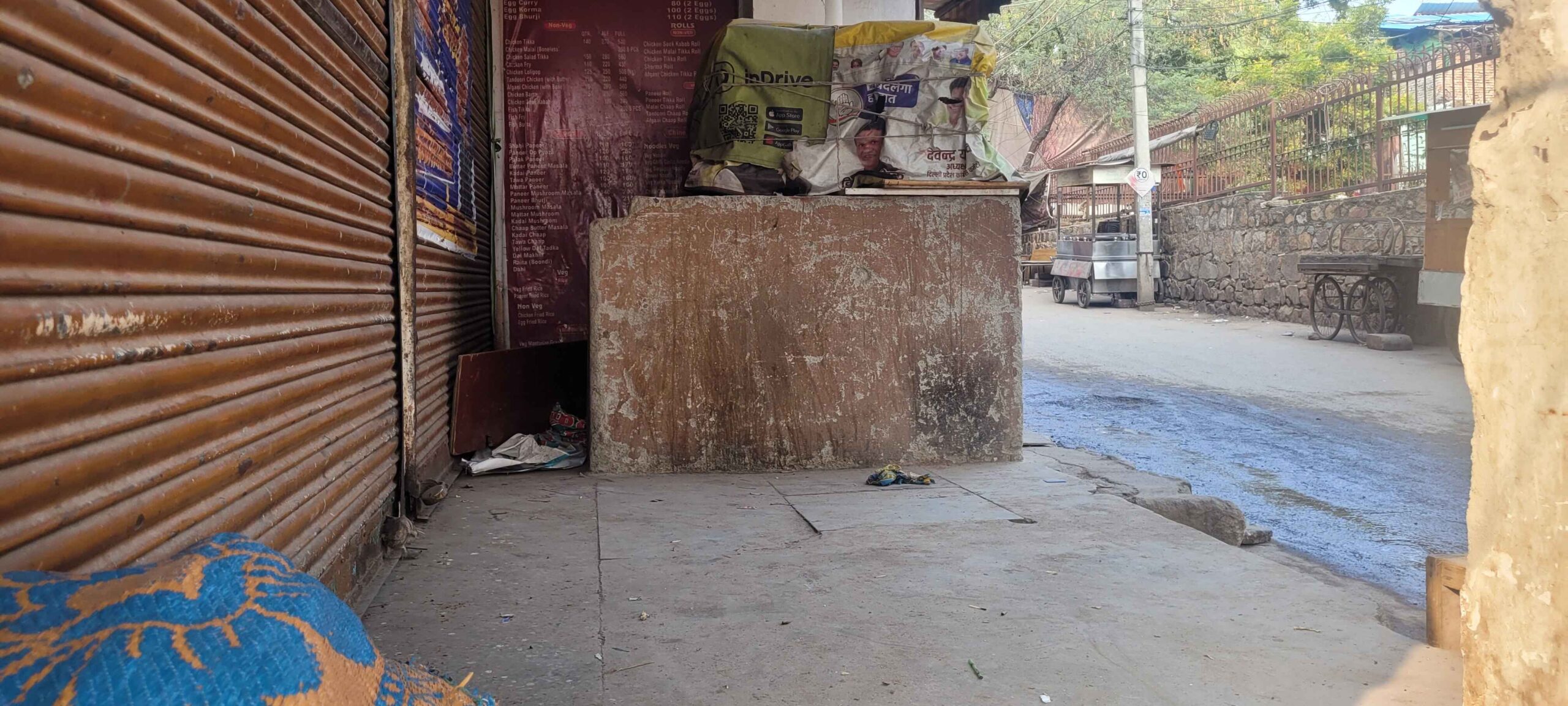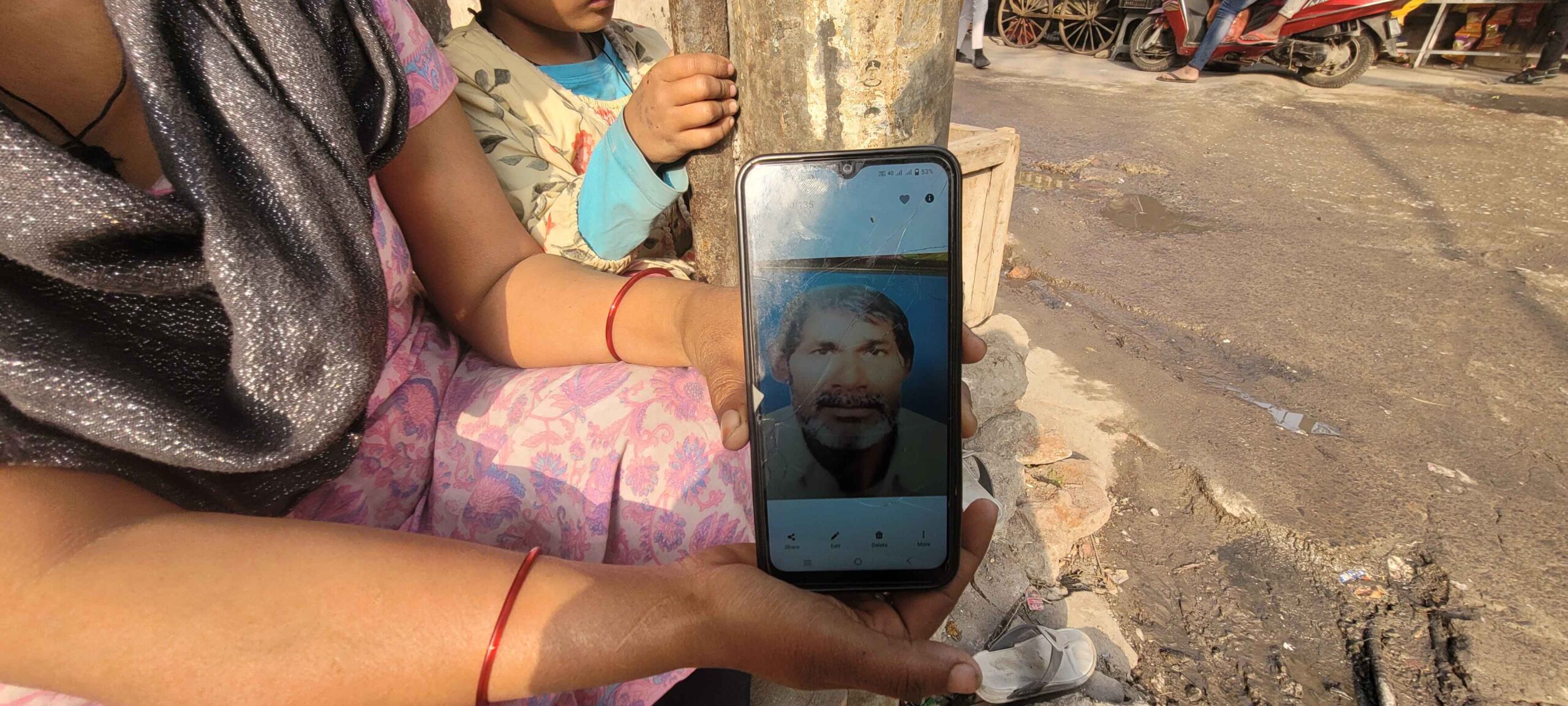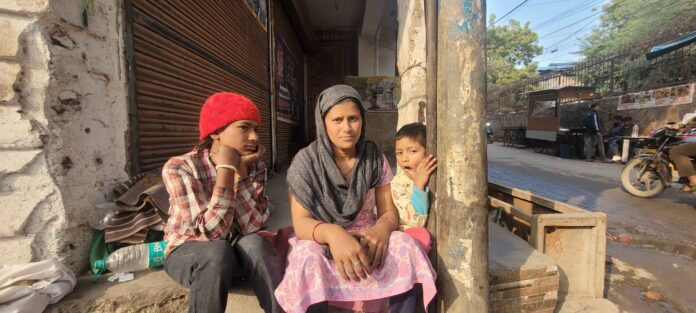Punam Masih, TwoCircles.net
New Delhi: Soni Singh sits on the steps of a shop near Mehrauli Dargah with her two daughters, waiting for kind-hearted individuals to offer them food for the day. Her life took a tragic turn last year when she lost her husband to an infection. “My husband worked as a daily wager. One day, he was assigned to clean a septic tank. There were two workers inside the tank who suffocated due to some poisonous gas, and someone called my husband to check. He went in and lost consciousness,” she narrated the horror.
Soni rushed him to the government hospital, where he was treated for two months before succumbing to the infection. However, she alleged that despite his death being linked to his work, neither the government nor the contractor provided any compensation. “After my husband died, I reached out to many places for help but received nothing. Financial assistance was given to the workers who died that day, but my husband was only injured and passed away later. Why was I left without support?”
Her two daughters sit quietly beside her, begging from the passersby. This staircase, along with the doorstep of the shop, is now their home.

Asked if she ever feels afraid living here alone, she responded, with tears welling up in her eyes, “What can I do? People look at me with judgment. But I have no choice but to stay here. The rent in the slums is too high, and I work in two houses, but it’s barely enough to cover basic expenses. Where could I possibly find a home?”
Soni then showed a picture of her late husband. “I am from West Bengal, and he was from Delhi. We married there and moved to Delhi. My in-laws live near Peeragarhi. As long as my husband was alive, they supported us. But after his death, they threw me out. They kept my son and kicked me and my daughters out.”
Soni continued, “At first, I stayed with my sister for some time, but when I could not pay rent, I was forced out again. Now, this shop is my only refuge.”
Despite her struggles, Soni is relentlessly searching for work, but the options are few. “I work as a dishwasher in two houses, but it is not enough. If I could get a job at a company, I could at least afford a room for me and my children.”

According to a Supreme Court ruling, the government is supposed to compensate the families of sewer workers who die during their work with Rs 30 lakh, and those who suffer permanent disability receive at least Rs 20 lakh. Unfortunately, Soni’s husband, who worked for a contractor, was not eligible for this compensation because there is no provision for workers injured during government contracts.
Now, Soni is left helpless, struggling to find a steady income while her daughters remain her only concern. The Dalit Adivasi Adhikar Manch (Dasam), an organisation that fights for the rights of sewer workers, is offering her some support. “I did not know much before,” she says, “but Dasam has helped me a lot. I hope that someday I will receive government assistance so that my daughters can go to school and have a better future. My son, however, has been taken by my in-laws.”
When asked about where she finds a bathroom, she said, “There is a government toilet nearby. I have to pay to use it and take a bath.”
Soni’s story is a testament to the harsh realities many face when tragedy strikes, and to the systemic indifference that perpetuates cycles of poverty and neglect.


